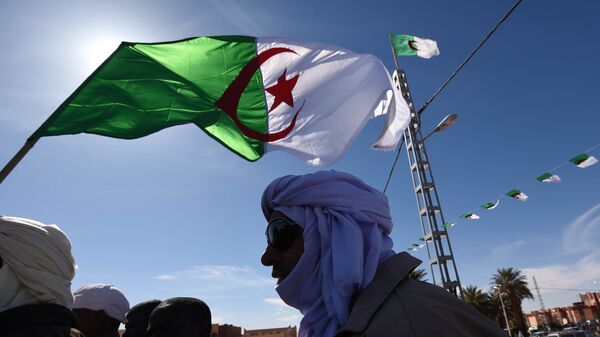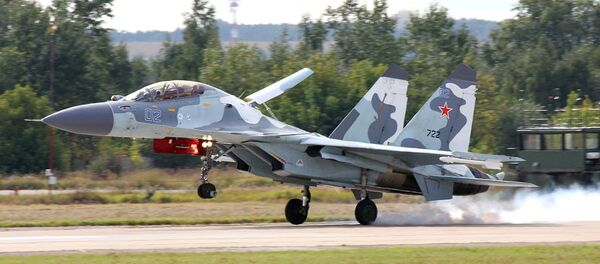Using the example of the Syrian crisis, Benbekhti draws the conclusion that Washington and Paris should not overlook Moscow's friendly and lengthy relations with the Algerian government, if they are preparing to continue their string of disastrous interventions in North Africa and the Middle East.
Political and economic links between Moscow and Algiers date back to the Soviet era, and the North African country's struggle for independence from colonial France.
In February Russian Foreign Minister Sergey Lavrov visited Algeria to hold talks with Algerian President Abdelaziz Bouteflika about the bilateral strategic partnership agreement the two countries signed in 2001, and about the security situation in the Middle East and North Africa.
The Algerian President was first elected Algerian president in 1999, and his presidency has been a stabilizing factor in rebuilding Algeria since the decade-long Islamist-inspired civil war ended in 2002.
However, Bouteflika, 79, suffered a stroke in 2013, and it is not known who his eventual successor in the post may be.
"This is the great mystery of the moment," Benbekhti writes, before describing the international dimension to the uncertainty.
The reporter describes Russia as a "key player, who has not shown themselves yet," but judging by its willingness to provide support for the Syrian government in its battle against terrorism, Moscow is a force that Washington and Paris should reckon with.
"The Western operation had tried everything to engineer the regime's fall, but without success," before Russia's military operation in Syria began last September, Benbekhti writes.
"Russia considers itself to have a lot in common with Algeria, and expects the implementation of the strategic partnership agreement signed in 2001."
"Moscow knows that it must keep a watchful eye on the North African region, and the Sahel. Algeria has a key position, clearly it does not want to be out of the loop."
"Those who want to put forward their protege should remember that nothing in this country is ever done without the General Staff, which is closer to Russia than France or the US," said Benbekhti, who nonetheless called on Algerian politicians to find a political conclusion that will ultimately exclude the possibility of outside interference in the transition.




